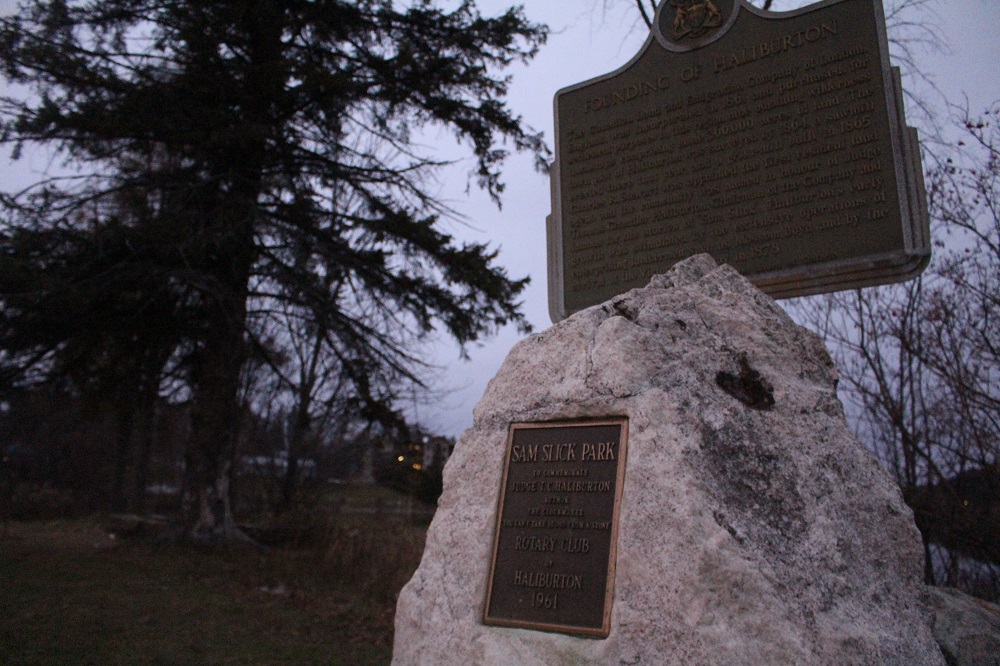The Uking’s Literary Society, the oldest literary student society in North America, decided Aug. 18 it could no longer abide being named after author Thomas Chandler Haliburton.
It was previously called the Haliburton Society, founded in 1884 at the University of King’s College, Nova Scotia. Haliburton was a famed Nova Scotian politician, judge and best-selling author, the first in what is now Canada.
Society president and history student Lucy Boyd said the group’s members today did not have much knowledge of Haliburton’s history before last year. After committing to researching him in Spring 2019, Boyd said they found his work rife with racism and sexism, which they detailed in a paper. After consulting with students and alumni and receiving overwhelming support, they changed their name.
“We are not turning our backs on our history, but instead opening a new chapter where the values of our society and the King’s community may be more accurately reflected,” the society wrote. “We encourage other groups affiliated with Haliburton’s name to join us in considering his impact, and to rethink the spaces named in his honour.”
Haliburton Village and County share the society’s former namesake. Although Thomas C. Haliburton never lived in the area, he was the first chair of the Canadian Land and Emigration Company, which brought many settlers to the area, according to Haliburton Highlands Museum director Kate Butler. That is why the community bears his name.
There has not yet been any local push to examine Haliburton’s name, but communities elsewhere have reckoned with it. Windsor, Nova Scotia once celebrated the figure and used his famed character, Sam Slick, as the namesake to a long-running festival. But in 2009, an illustration stemming from Haliburton’s Sam Slick writings, depicting a black character, was used in the festival and pointed out as racist, according to a Sept. 22 council agenda. The town subsequently renamed the festival. The West Hans Regional Municipality also passed a resolution Sept. 22 to remove the remaining Sam Slick iconography in the area and write an apology.
Dysart et al Mayor Andrea Roberts said renaming is not something that has come before council and no citizens have yet expressed any concern over Sam Slick Park or Haliburton’s name.
“You have to be really careful of making these judgements based on limited evidence,” Roberts said. “It’s a very fine line because you do not want to erase your history.”
Butler said Haliburtonians do not know much about their namesake. She said the author was renowned and his Sam Slick character became a famed piece of satire. The writings, compiled in The Clockmaker, spread to Britain and the United States. Besides commentating on aspects of American and British culture, the work would popularize several common sayings, including “it’s raining cats and dogs” and “the early bird gets the worm.”
Sam Slick Park was named in the 1960s as a further nod to Haliburton, Butler said. She further said conversations around renaming places tied to racist historical figures are worth having. She added people should consider figures in their historical context, as well as the lens of today.
“We need to have those conversations about what they mean today. In order to tell stories more fully and provide more context today, to give people a better understanding,” Butler said. “That’s really what leads to fulsome discussions about where we move in the future.”
In their paper, the UKing’s Literary Society said racism permeates Haliburton’s work. In The Clockmaker, there are many references to the n-word and an escaped slave longing for his former servitude. The society also described the work as sexist, describing women unfavourably with animals and justifying domestic violence.
Boyd said some of these viewpoints may have been common in the day, but added Haliburton was conservative even by his time’s standards. She said Haliburton is an important author whose work should be taught, but naming is different.
“We feel having a group named after him is sort of a position where we place him on a pedestal,” Boyd said. “Having this group named after someone who, frankly, advocated for slavery and domestic violence, isn’t necessarily the way to make sure this is an inviting space.”
Roberts said it is not a closed subject, but council has a full plate and without public outcry, exploring the issue would not be a priority. She further said it is more important to ensure the community is inclusive overall.
“The most important thing is not to dwell too much in the semantics of history unless it’s glaringly horrific. But to focus on today and make sure that today we are a tolerant community.”
Boyd said it is important to work to get a better understanding of history. She added the goal was not to tear down Haliburton.
“The goal of our project was to develop a better understanding of who we are and what we came from,” she said. “That means looking at all aspects of our history, things that are great and things that are less great.”





